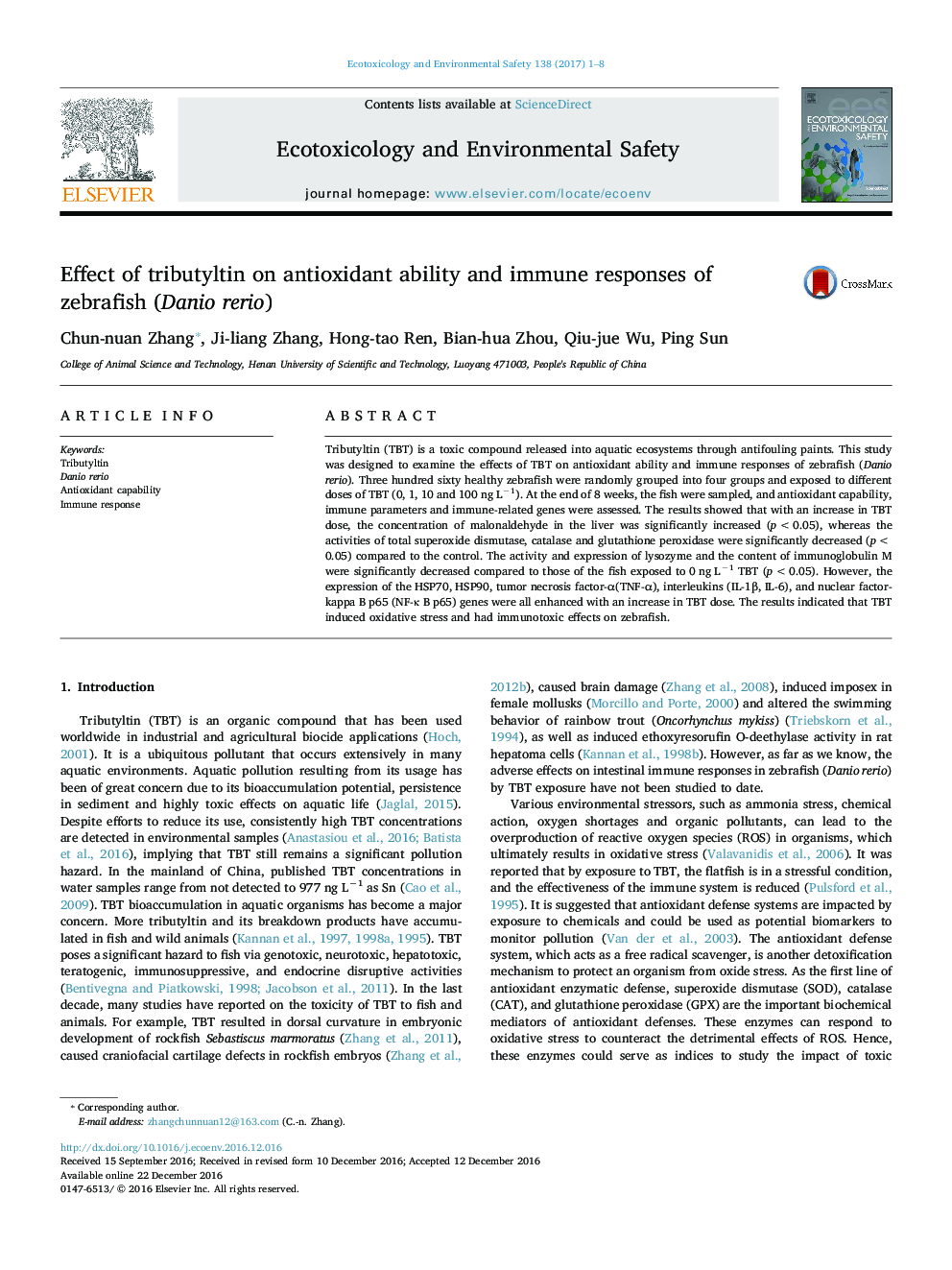| Article ID | Journal | Published Year | Pages | File Type |
|---|---|---|---|---|
| 5747936 | Ecotoxicology and Environmental Safety | 2017 | 8 Pages |
â¢Tributyltin (TBT) induces oxidative stress and disturb antioxidant balance in zebrafish.â¢TBT depressed the lysozyme activity and IgM contents.â¢TBT induced the mRNA expression of pro-inflammatory cytokines.â¢TBT levels above 10 ng L-1 impair immunological abilities of zebrafish.
Tributyltin (TBT) is a toxic compound released into aquatic ecosystems through antifouling paints. This study was designed to examine the effects of TBT on antioxidant ability and immune responses of zebrafish (Danio rerio). Three hundred sixty healthy zebrafish were randomly grouped into four groups and exposed to different doses of TBT (0, 1, 10 and 100 ng Lâ1). At the end of 8 weeks, the fish were sampled, and antioxidant capability, immune parameters and immune-related genes were assessed. The results showed that with an increase in TBT dose, the concentration of malonaldehyde in the liver was significantly increased (p<0.05), whereas the activities of total superoxide dismutase, catalase and glutathione peroxidase were significantly decreased (p<0.05) compared to the control. The activity and expression of lysozyme and the content of immunoglobulin M were significantly decreased compared to those of the fish exposed to 0 ng Lâ1 TBT (p<0.05). However, the expression of the HSP70, HSP90, tumor necrosis factor-α(TNF-α), interleukins (IL-1β, IL-6), and nuclear factor-kappa B p65 (NF-κ B p65) genes were all enhanced with an increase in TBT dose. The results indicated that TBT induced oxidative stress and had immunotoxic effects on zebrafish.
